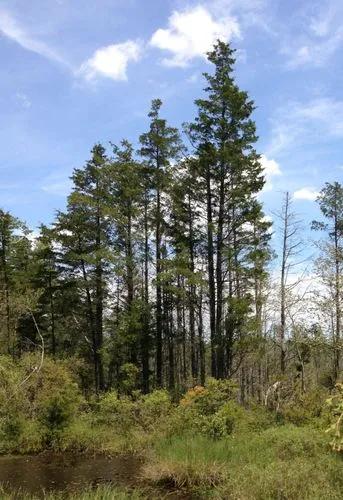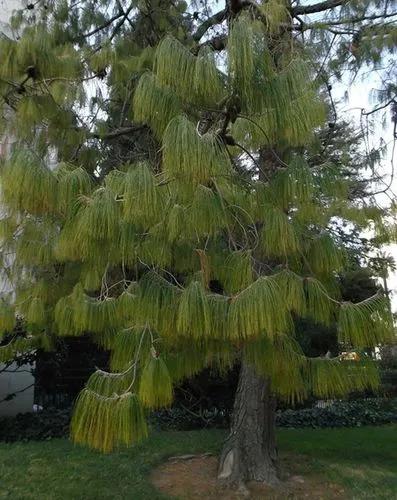Calocedrus decurrens (California Incense-cedar; syn. Libocedrus decurrens Torr.) is a species of conifer native to western North America, with the bulk of the range in the United States, from central western Oregon through most of California and the extreme west of Nevada, and also a short distance into northwest Mexico in northern Baja California. It grows at altitudes of 50-2900 meter. It is the most widely-known species in the genus, and is often simply called Incense-cedar without a regional qualifier. It is a large tree, typically reaching heights of 40-60 meter and a trunk diameter of up to 3 meter (maximum, 69 meter tall and 4.5 meter diameter), and with a broad conic crown of spreading branches. The bark is orange-brown weathering grayish, smooth at first, becoming fissured and exfoliating in long strips on the lower trunk on old trees. The foliage is produced in flattened sprays with scale-like leaves 2-15 millimeter long; they are arranged in opposite decussate pairs, with the successive pairs closely then distantly spaced, so forming apparent whorls of four; the facial pairs are flat, with the lateral pairs folded over their bases. The leaves are bright green on both sides of the shoots with only inconspicuous stomata. Easy to grow in the garden but requires plenty of room. If given deep, infrequent watering when young it will develop drought tolerance.
Incense Cedar Care
Calocedrus Decurrens



What is the plant
How to Care for the Plant

Water

It prefers dry or moist soil.

Pruning

Little to no pruning required.

Sunlight

It can grow in semi-shade (light woodland) or no shade.
Ease your plant care routine with PlantIn's personalized system.

Soil

Suitable for: light (sandy), medium (loamy) and heavy (clay) soils and prefers well-drained soil. Suitable pH: acid, neutral and basic (alkaline) soils.

Popularity

1,631 people already have this plant 80 people have added this plant to their wishlists
What's wrong with your plant?
Related Plants
Discover more plants with the list below
Popular articles






